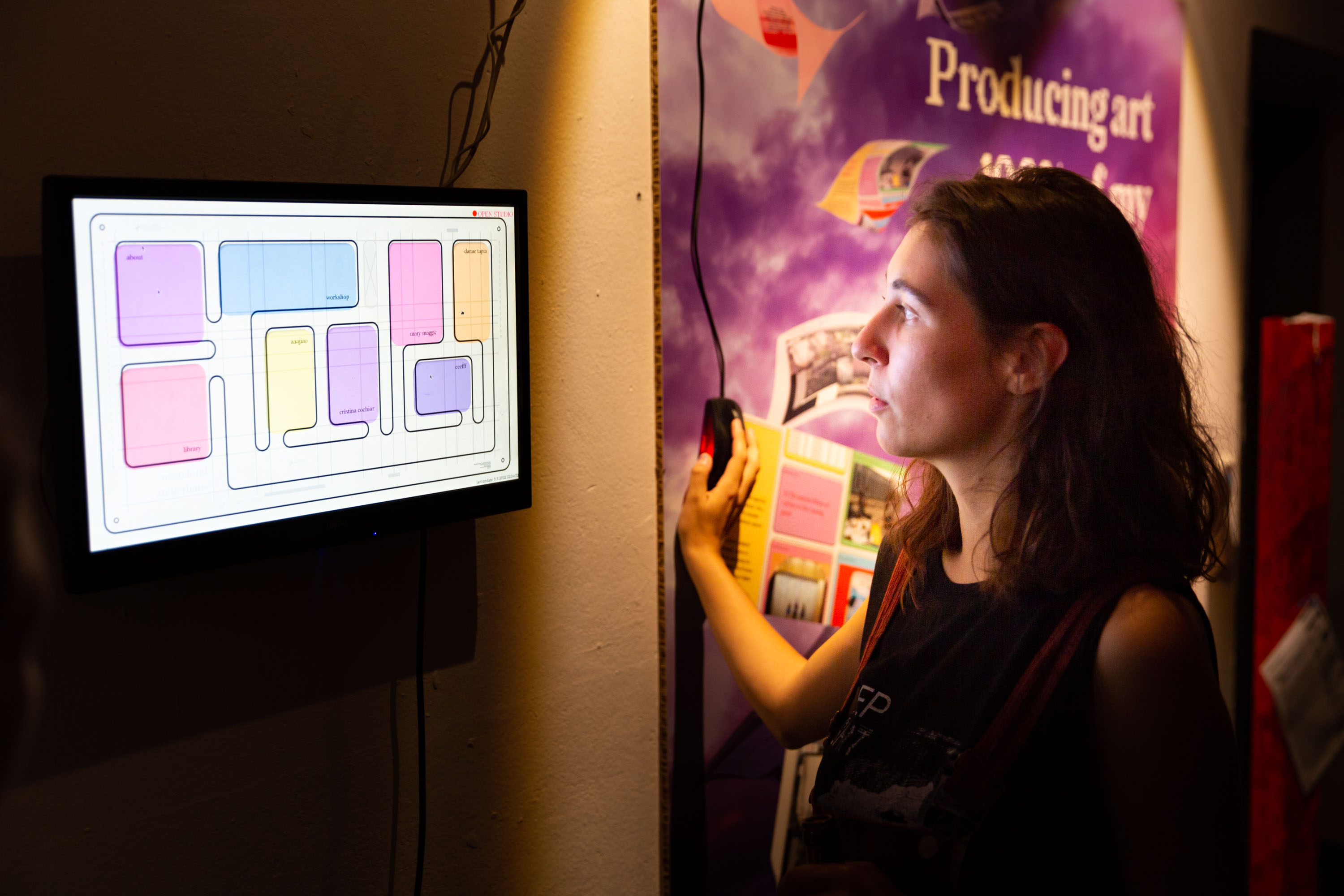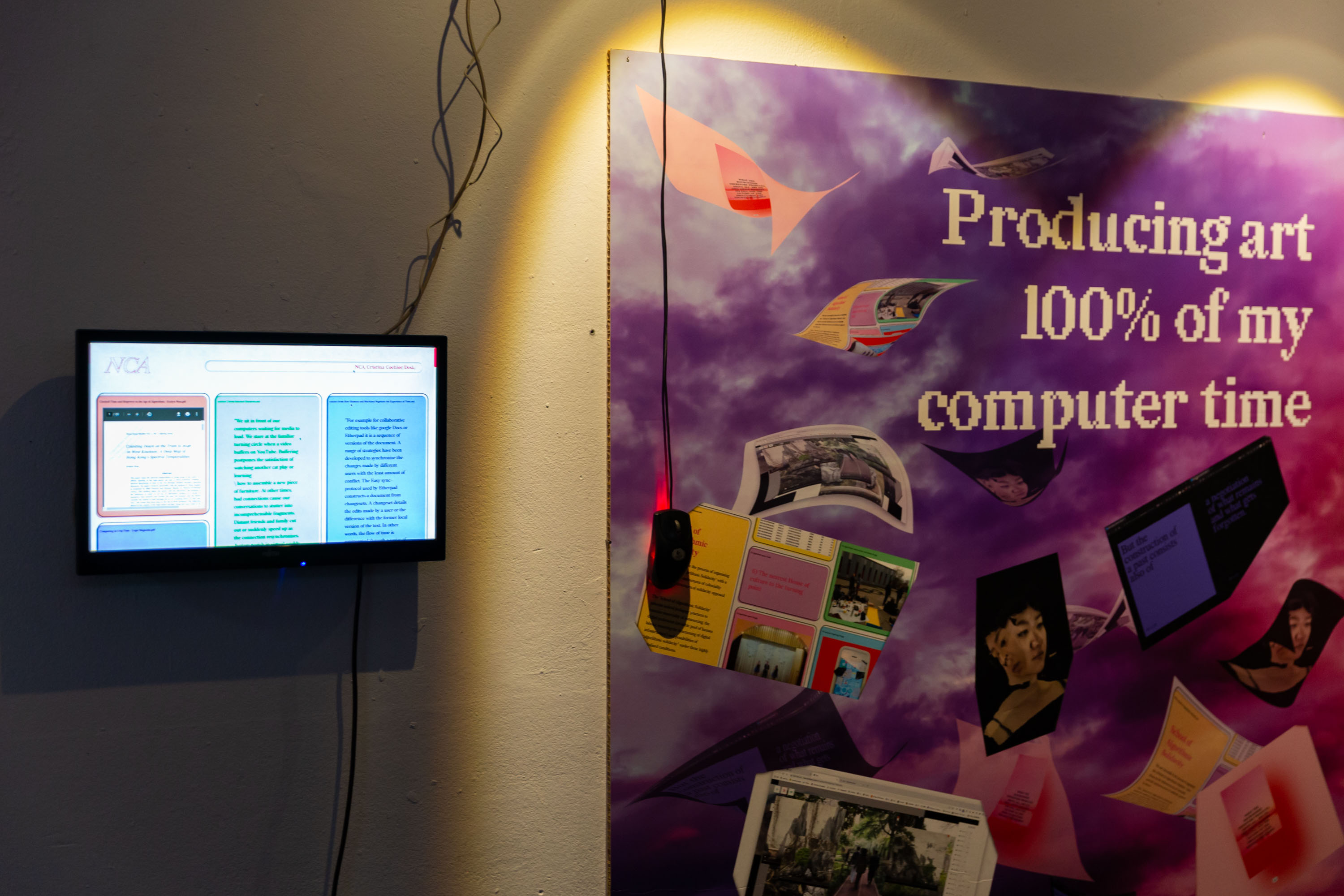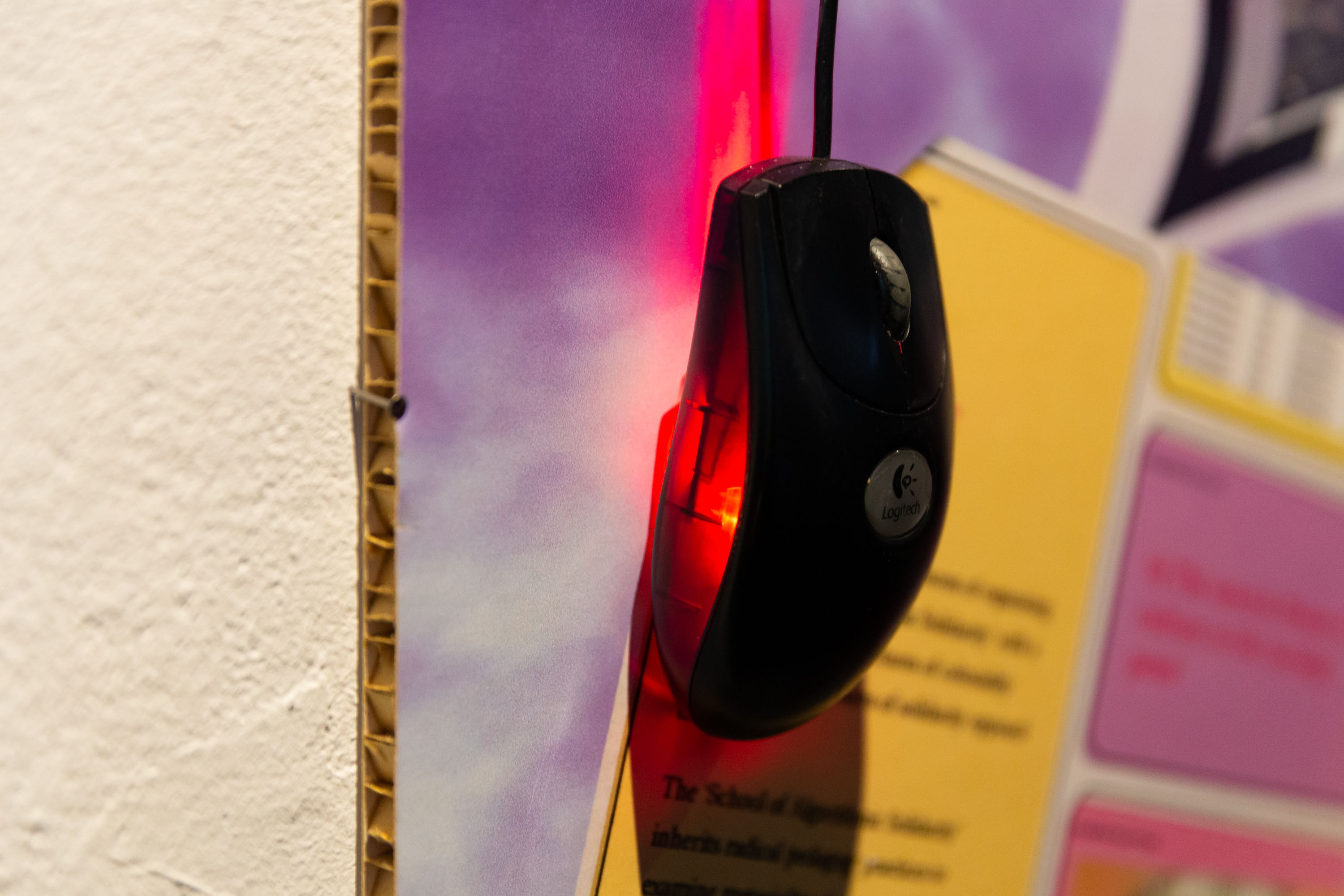Next Cloud Atelierhaus 2022
Producing art 100% of my computer time
Online-Recidency-Programm
1. Stock Foyer & https://atelierhaus.servus.at / Durchgehend
Residency-Artists: aaajiao, Cristina Cochior, eeefff, Danae Tapia, Mary Maggic
Curated by S( )fia Braga, Davide Bevilacqua, Matthias Pitscher for servus.at
Visuelle Identität & Webentwicklung: Juan Pablo Linares & Matthias Pitscher
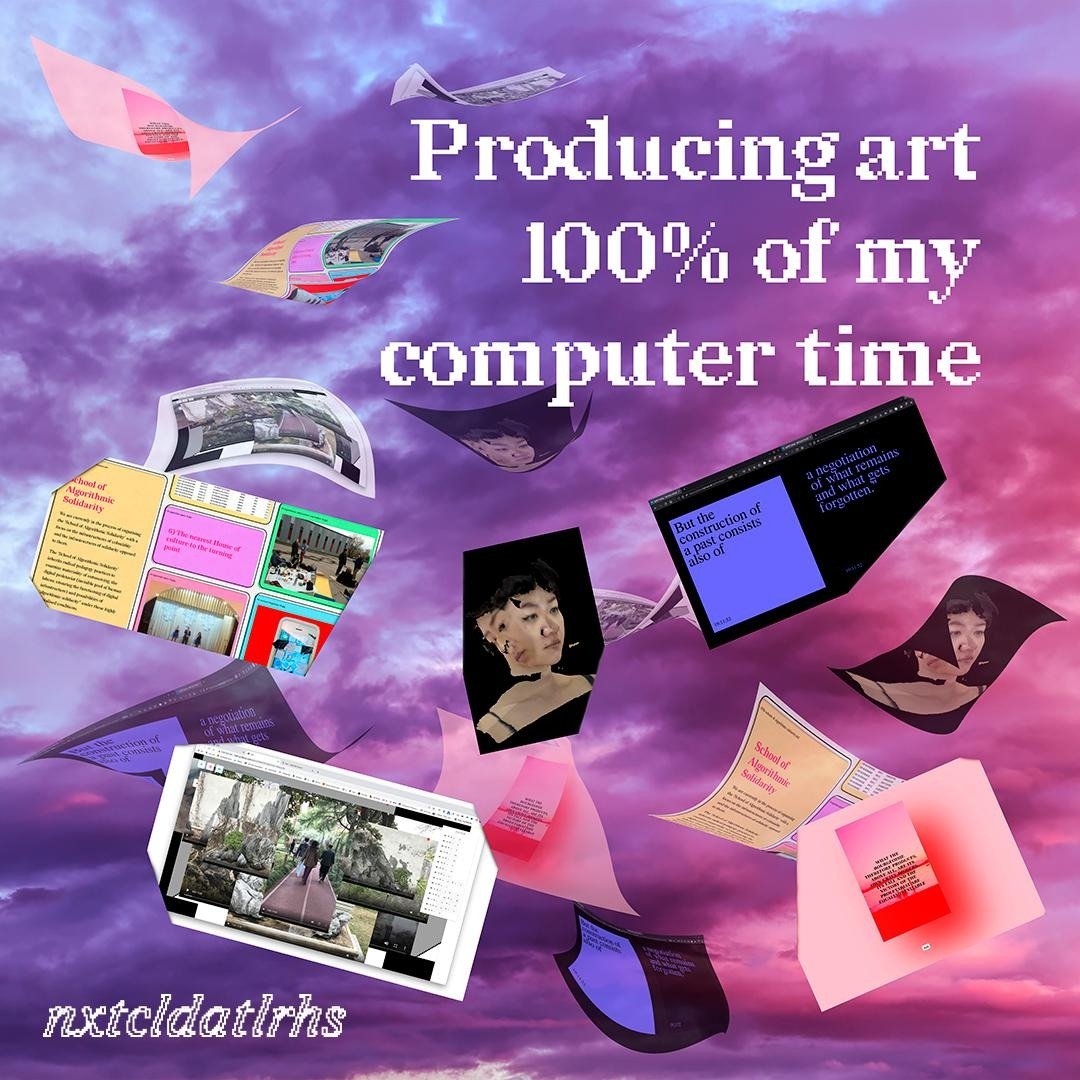
Das Next Cloud Atelierhaus ist ein einmonatiges Online-Residenzprogramm in der servus.at-Cloud, bei dem 5 eingeladene KünstlerInnen Zugang zu unserer Infrastruktur haben, um ein Projekt zu erstellen und miteinander zu arbeiten und zu kooperieren. Die TeilnehmerInnen wurden eingeladen, alle Tools der von servus.at verwalteten Cloud-Instanz zu nutzen, einer Plattform, die auf der Idee der Zusammenarbeit mit anderen aufbaut: Sie ermöglicht Kommunikationskanäle wie Chats und Videokonferenzen und verfügt über spezifische Tools zur Organisation von Gruppenworkflows.
-
Im Rahmen von The Next Cloud Atelierhaus zielt servus.at darauf ab, eine digitale Institution auf Zeit zu schaffen, deren Aufgabe es ist, Online-Residenzen mit Online-Mitteln zu bereichern - digitale Kunst zu fördern und ihre Bedürfnisse zu unterstützen. Als kuratorisches Experiment einer selbst geschaffenen Institution untersucht das Projekt, welche Rolle das Atelierhaus - oder das Atelierhaus - in den Online-Räumen spielen kann.
Besuchen Sie die Ateliers der Künstler unter: https://atelierhaus.servus.at
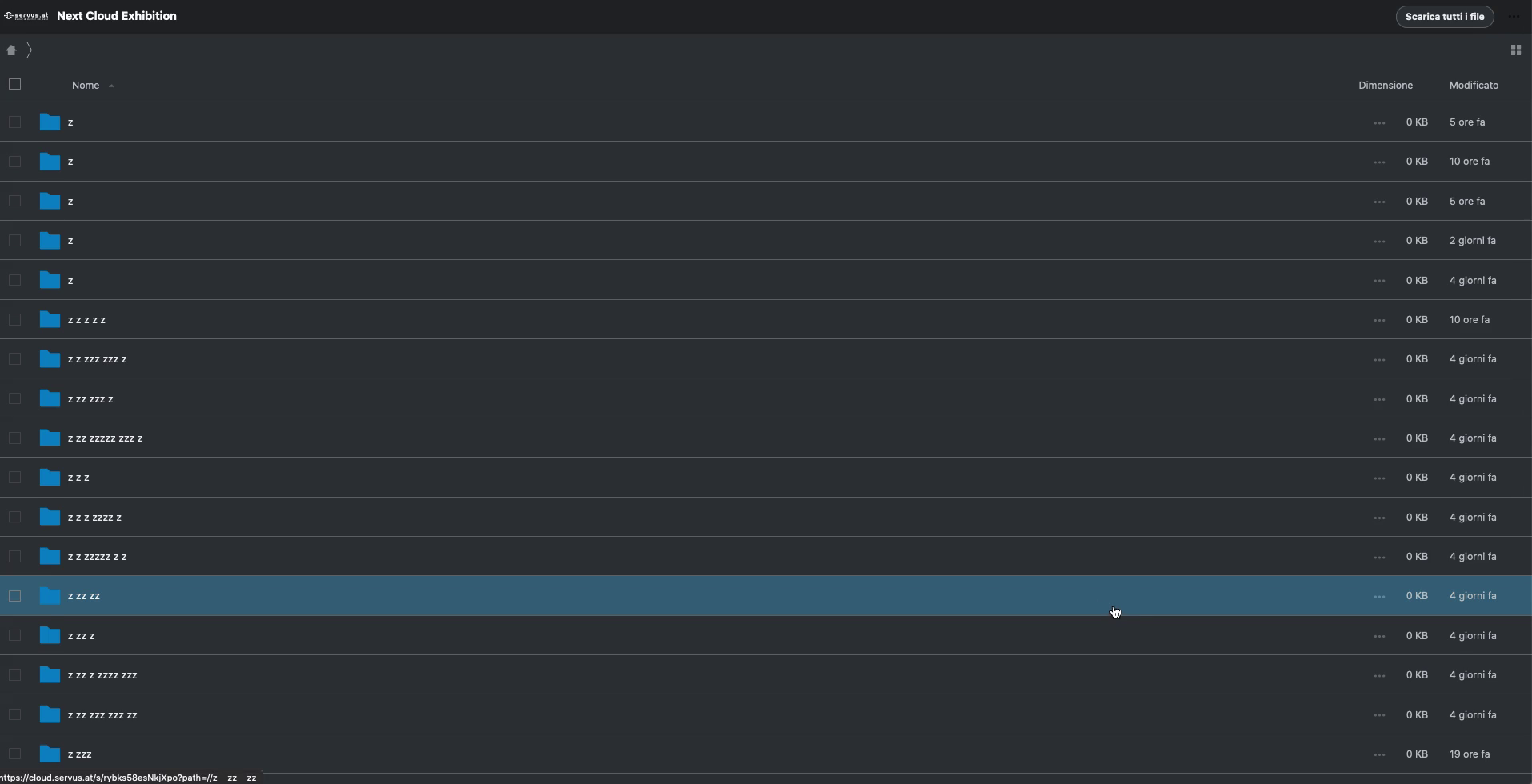
next_cloud_residency_2021_guido_segni
Artists and Curators:
aaajiao: Active online as a media artist, blogger, activist and programmer, aaajiao is the virtual persona of Shanghai- and Berlin- artist Xu Wenkai. Born in 1984—the title of George Orwell’s classic allegorical novel— and in one of China’s oldest cities, Xi’an, aaajiao’s art and works are marked by a strong dystopian awareness, literati spirits and sophistication. Many of aaajiao’s works speak to new thinkings, controversies and phenomenon around the Internet, with specific projects focusing on the processing of data, the blogsphere and China’s Great Fire Wall. aaajiao’s recent projects extend his practice to various disciplines (among them, architecture, topography, and design) to capture the pulse of the young generation consuming cyber technology and living in social media. aaajiao lives and works in Shanghai and Berlin. https://eventstructure.com/
Cristina Cochior (RO/NL) is a researcher and designer working in the Netherlands. With an interest in automation practices, disruption of the interface and peer to machine knowledge production, her practice consists of research investigations into technical and bureaucratic knowledge sharing systems. http://randomiser.info/
eeefff are artistic cooperation / made-up institution / cybernetic political brigade / poetic computations / hacking unit / queer time. It is neither one of these, nor all together. active from 2013. we make software-based projects, publications, networks, and platforms that critically explore digital labour, value extraction, and community formation in Eastern Europe. our methods include: public actions, online interventions, performative seminars, software and hardware hacking, framing environments and choreographing social situations. we are both against the war in Ukraine and the current dictatorship in Belarus, pressing issues that drive our politics and inspire our practice. https://eeefff.org/
Danae Tapia is a writer, multimedia artist and technologist born in the Chilean working class. She is a researcher and lecturer of Hacking and Autonomous Practices at the Willem de Kooning Academy in Rotterdam, Netherlands. She is the founder of The Digital Witchcraft Institute. This venture was Danae’s project for her fellowship with the Mozilla Foundation which started as an artistic-research experience dedicated to collect and showcase advanced non-conforming approaches to the use of tech. To the present day, The Digital Witchcraft Institute has executed a series of projects about sacred interoperability. https://digitalwitchcraft.works/
Mary Maggic (b. Los Angeles, '91) is a nonbinary artist working at the intersection of hormones, body and gender politics, and ecological alienations. Maggic frequently uses “biohacking” as a xeno-feminist practice of care that holds the potential to demystify invisible systems of molecular biopower. Completing their Masters in the Design Fiction group at MIT Media Lab, they received the Prix Ars Electronica Honorary Mention in Hybrid Arts (2017) for the project “Open Source Estrogen” and a 10-month Fulbright research award in Yogyakarta, Indonesia (2019). Maggic is a current member of the global network Hackteria - Open Source Biological Art, the tactical theater collective Aliens in Green, the Asian feminist association Mai Ling Vienna, as well as a contributor to the radical syllabus project Pirate Care and to the online Cyberfeminism Index. https://maggic.ooo/
S( )fia Braga is a transdisciplinary artist and cyberstalker. She develops her artistic research between Digital and Post-Digital practices, focusing especially on the social impact of web interfaces and the subversion of centralised social media platforms, dealing with topic such as Interveillance and the rediscovery of the potential of the bodies through the use of new technologies. S( )fia’s identity is constantly changing and goes hand in hand with the narratives she creates within her projects: over the last 3 years she has been an artist, a cyberstalker, a researcher and has mutated several times into a monstrous creature. https://sofiabraga.com/
Matthias Pitscher works as an artist, designer, meditation teacher, barista, researcher, entrepreneur and bad influencer. The artifacts he produces deal with the constant changes we face in our transition to a technologically connected society. Analytical yet humorous, he demonstrates how digital media transforms our perception of reality. Through play and interaction the visitor often becomes the center of the artwork itself. His interactive installations, performances and audiovisual pieces are shown at international Festivals, Museums and Galleries. https://pitscher.net/index_v1.7.txt
Davide Bevilacqua is a media artist and a curator interested in network infrastructures and technological activism, as well as in curatorial and artistic research about the framework conditions in which artistic practice is presented and transmitted to the audience. His actual topics of research are the environmental impact of technology and internet sustainability, digital greenwashing practices and platform capitalism. Davide coordinates servus.at cultural program since 2018. http://davidebevilacqua.com/, https://core.servus.at/
Gefördert durch LinzIMpORT 2022 Linz, Kultur & Kunst und Kultur im digitalen Raum - Land Oberösterreich.
DOKUMENTATION
